Lifehacker.ru and the publishing house "Mann, Ivanov and Ferber" continue to study the bookshelves of IT companies. For this purpose, we visited the Acronis office.
Acronis is a Russian company that has become a global specialist in the field of information backup. Acronis backup and data recovery products are leading in 90 countries, the company has 18 offices around the world. People who work on the preservation of information probably have a special attitude to information from books. Shall we look at their bookshelves?There are two bookcases in the Moscow office of the company. One – with professional literature, the other – with fiction. Here's what the work staff reads:
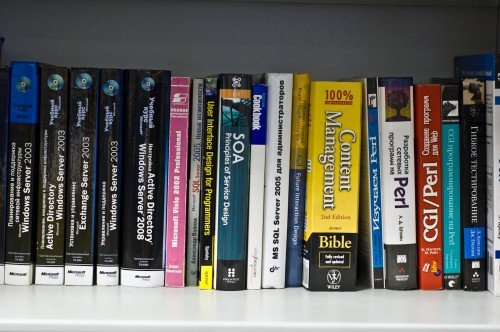
There are a lot of books about Microsoft technologies, databases, interface design… Of the languages, Perl is the leader, there are Visual Basic manuals.
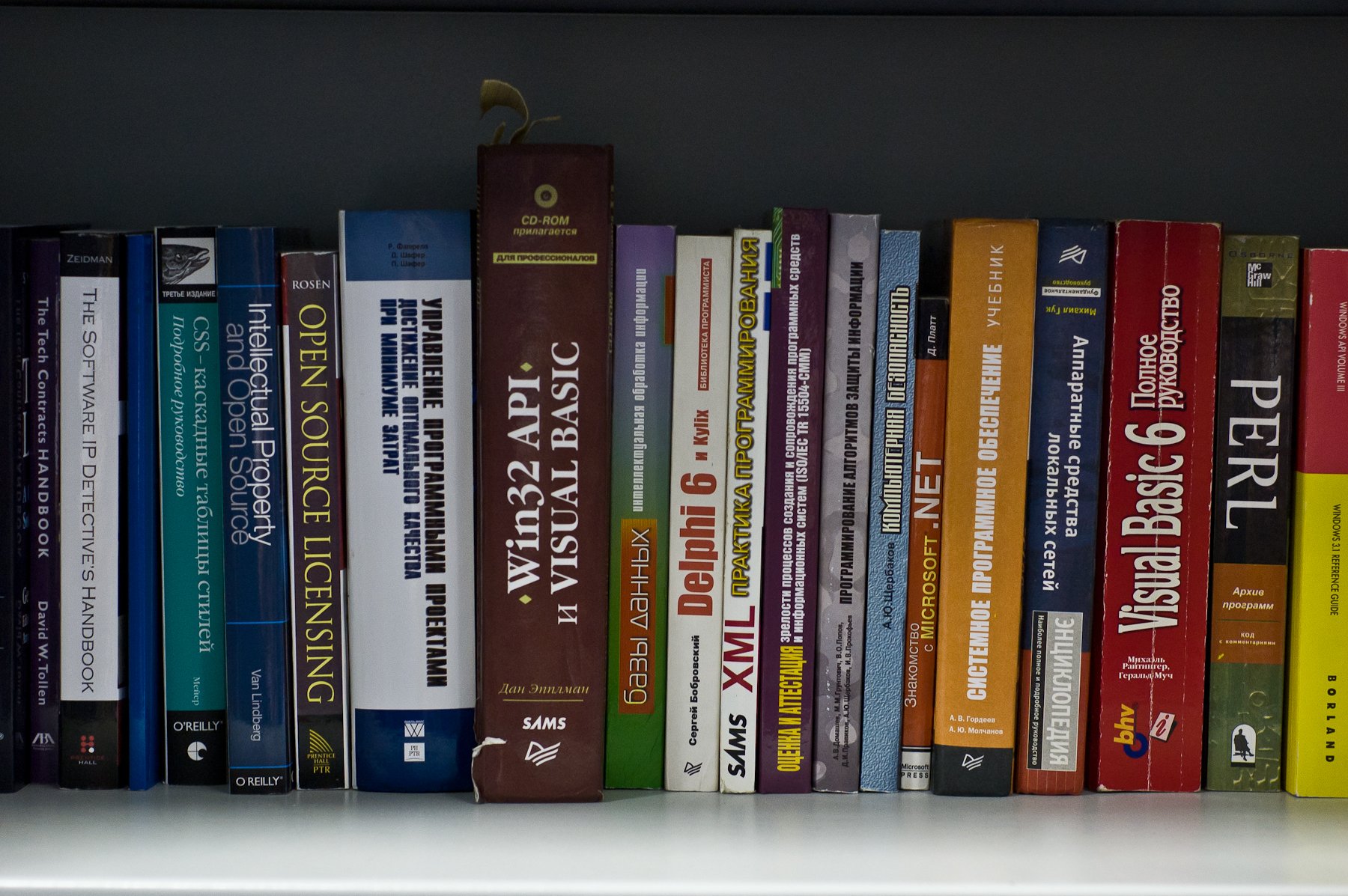
You can find several volumes about project management, testing, and software development requirements.
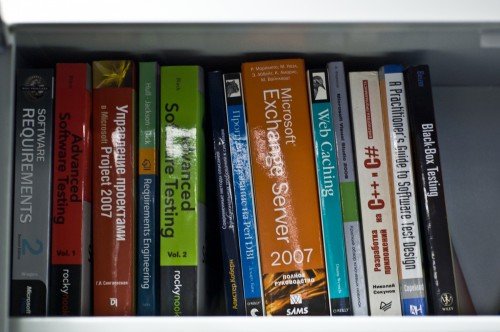
If an employee wants to read something, he fills out an application and takes it to the reception. There, friendly girls write a book on it and give out the keys to the cherished bookcase.
You can immediately see that there are a lot of readers in the company – that's how the book about Exchange Server is read, all in bookmarks and notes.
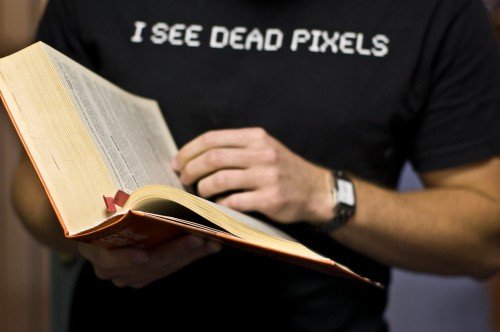
However, this shelf is full of technical literature. We found only a couple of books about the success story, and both about Google. "Breakthrough in the spirit of the times" is on the shelf, and The Google Story" someone took to read. It seems that there is not enough "Google. Past, present, future."
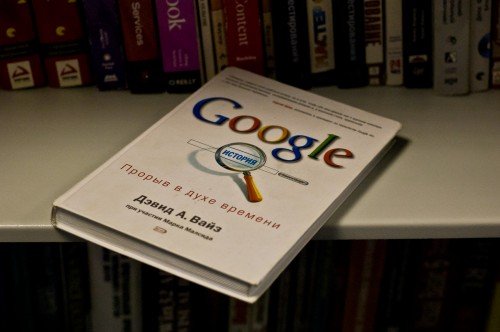
Unexpectedly, there were works that our colleagues from the publishing house respect: "The appearance of the book. Selected articles about book design and typography" by Jan Chikhold. There is also an inspiring bestseller about the business of the new era – the well-known Rework.
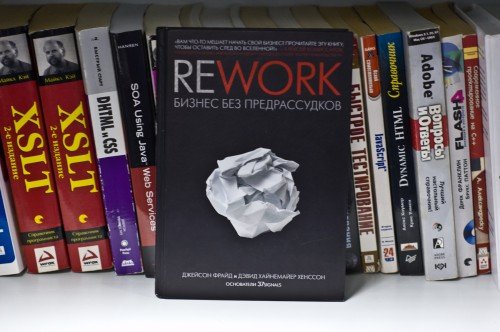
But does no one at Acronis read books about self-management, personal growth, and the development of thinking? We asked the employees themselves.
It turned out that they still read. Emil Manukyan, Chief Architect: "The most memorable and impressive of the books on management, of course, was «Peopleware» (Human Factor. Successful projects and teams) by Tom DeMarco and Timothy Lister. The book seemed to have been copied from those design problems that forced me to turn to literature. Of all the described anti-patterns, only the Furniture Police did not approach our situation at that time."
In general, Emil has a very interesting approach to reading. "I have two "streams" of literature that I read every day: "professional" and "on a free topic." The free topic was conceived as a philosophical one, but gradually books on psychology, esotericism, and popular science began to appear in this "stream". In addition to programming and design languages, books on management, business, technology, science (artificial intelligence, collective consciousness), usability, requirements specifications, cognitive psychology, architecture and linguistics have penetrated into the "professional stream", which served as a source for software discoveries."
Among the books of the "philosophical stream" Emil names "La Divina Comeida" by Dante, Castaneda, Borges, "La rebelión de las masas" by Gabriel Ortega y Gaceta, Dead cert by Dick Francis, "Critique of Pure Reason" by Kant. "The breadth of horizons has not hindered anyone yet," he comments.
To assess the breadth of architects' horizons in Acronis, you can look at the cabinet with fiction:
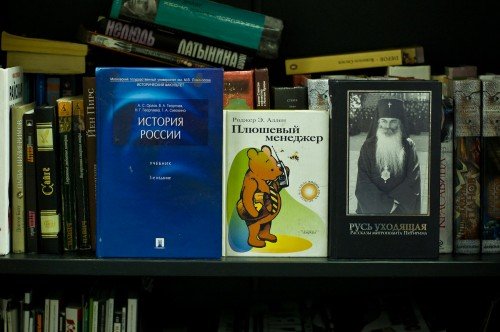
Anatoly Bobrov, who had a hand in the appearance of this art library in the company, says: "The cabinet lives its own life. Some books appear, others disappear, and it's fun. I tried to become responsible and play the role of a librarian, but if there is no lock, then why? Here there is such an "exchange without looking" — you can bring something, in your opinion, very simple, and discover what you did not expect to meet.
Some books are going away forever: from my "losses", "Time Drive" by Arkhangelsk, from acquisitions - "Illumination" by Gladwell."
So that's where, it turns out, business books nest! We found Dreiser's "Financier" on the shelf. This book is sometimes called the progenitor of the business novel genre, in which many popular authors present their ideas.
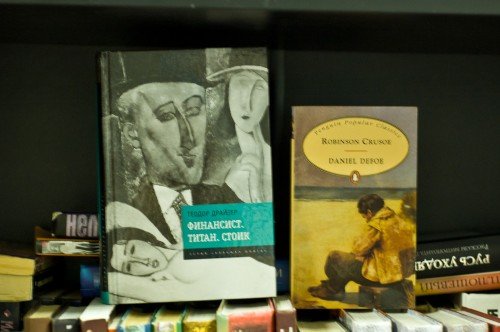
There are Camus, Hemingway, and Strugatsky's "Noon" on this shelf. It turns out that cabinets are clearly divided into technical and humanitarian?
Emil objects to us. He explains that programming at its best is not a technical field, but a very humanitarian one.
"A programmer is dealing with a person! Even if you disown the user, the programmer is a person himself and often the solution to the problem is to dig out in his brain the steps that he fleetingly did when he came to the solution of the problem. And what is it if not introspection and cognitive psychology?"
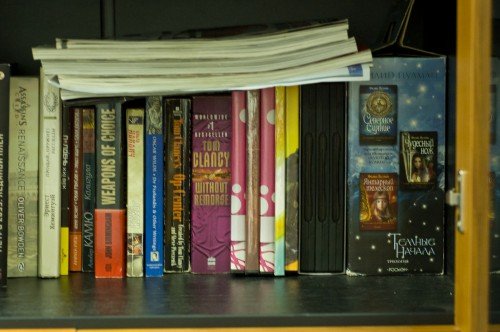
Emil told us how studying philosophy helps to understand programming more deeply: "Kant argued that reason strives for unconditionality. But this is exactly what an ideal understandable program is – unconditional (i.e. all the conditions are pulled out to the application configuration level, creating abstractions of the subject area). Jung and his Synchrony were also useful to me (at that time I was just interested in synchronizing two software agents), existentialism, which led to the metaphor of virtualization of the environment for the software module, and even Sun Tzu's "Art of War", which approved the number five as the maximum available for control by the human brain. Well, a lot of living metaphors that every day help in designing to select the right names for entities – this is, one might say, my bread in my position as an architect."
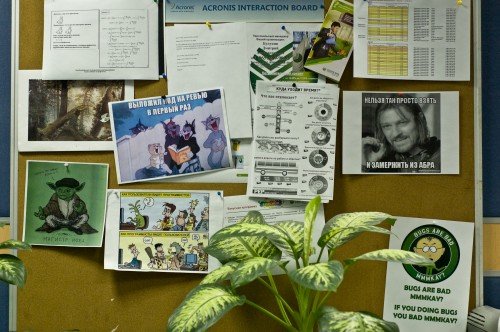
However, the company has another library, the knowledge of which is drawn from Acronis technical support staff. Alexander Krutikhin, Training and Quality Support Manager: "This library serves to prepare for Microsoft Certified Technology Specialist and Linux Professional Institute Certification. Every year, the most productive employees of the department get the opportunity to be certified at the expense of the company. Acronis provides the necessary literature for self-preparation and pays for the exam from one of Microsoft's official partners."
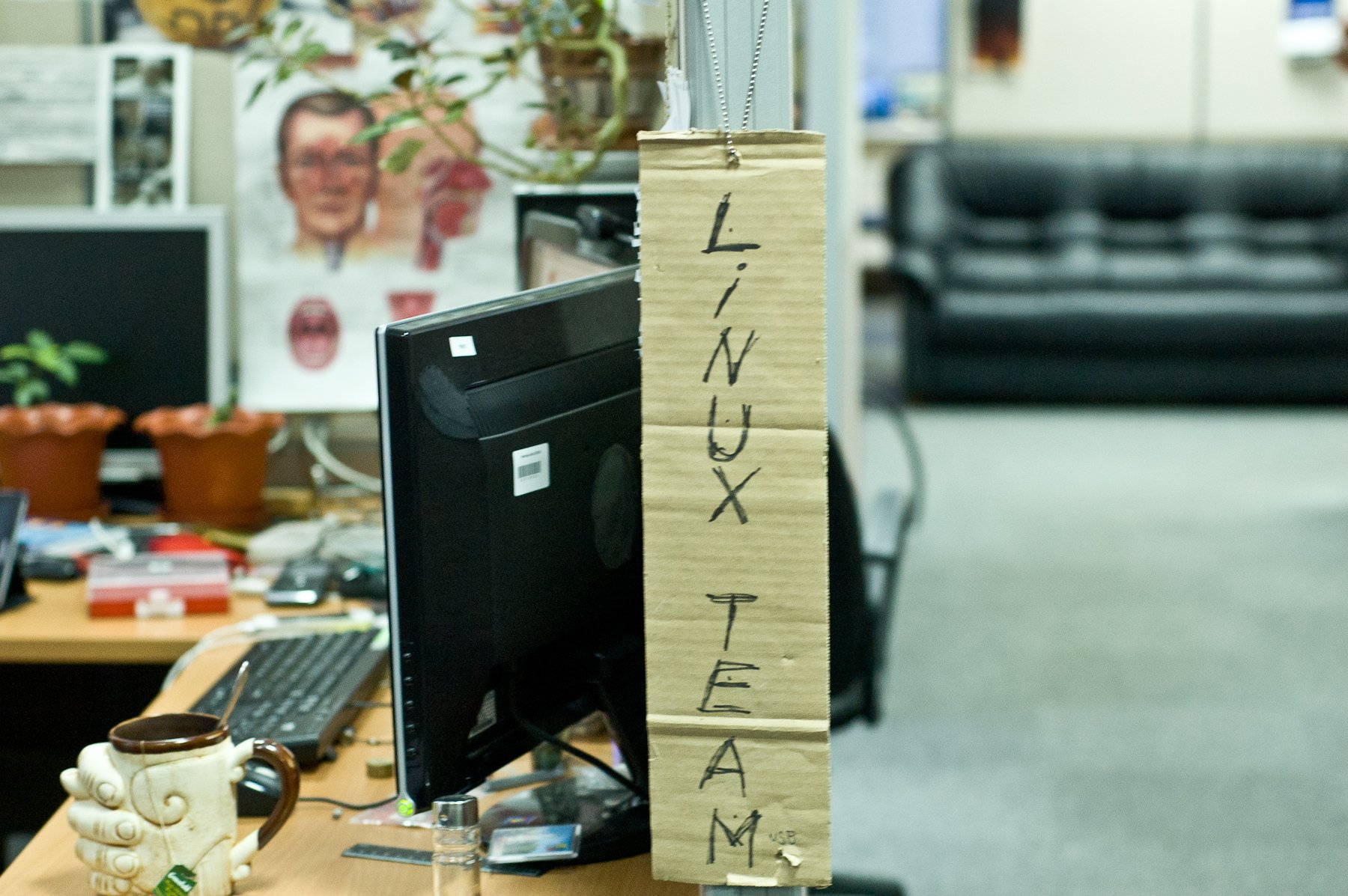
This is how a variety of books help Acronis employees. When artistic and philosophical literature allows you to discover new facets of the profession, it speaks not only about the love of books, but also about the love of the profession. It remains to be glad that one of the most successful IT companies in Russia loves both reading and work.
Photos of Kristina Yatkovskaya
Instagram Facebook and social networks owned by Meta Platforms Inc. are prohibited in the territory of the Russian Federation.